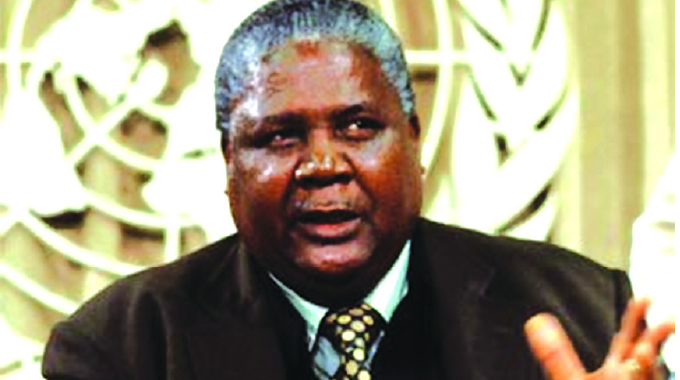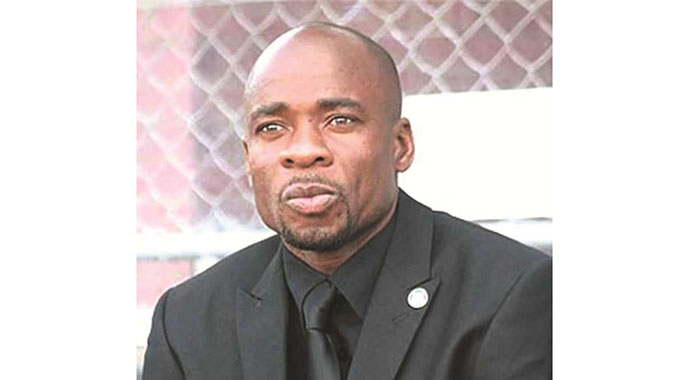FOOTBALL HAS A TRIBAL PROBLEM

Sharuko On Saturday
FOR years, they have been feeding us the fantasy that football is the most beautiful game in the world.
And, to ensure that we swallow this narrative, they attribute this phrase to Pele — the game’s first global superstar.
The man who, at the tender age of 17, won the World Cup.
They had to find someone whom the whole world loved, a proper gentleman, the ultimate superman, to provide the human attachment to this phrase.
They had to find someone, who was embraced throughout the globe, to provide the human reference to this phrase.
The only man who would probably have qualified to be appointed football’s ambassador at the United Nations.
By doing so, they ensured that we would never ask questions and, like members of a Doomsday cult, ask no questions, see no evil and hear no evil.
I’m not sure what those, who were part of the global football family, called their game in the pre-Pele era?
Maybe, the prettiest game in the world.
Or, probably, the most charming game, the good looking game, the most attractive game, the most glamorous game, the most handsome game.
Whatever it was, it was their time, it was their generation and their football which, in a huge way, is different from the game we have today.
Ours is a different beast altogether with VAR, games that now last 100 minutes, women games that attract 80 000 fans and far much more.
We call it the most beautiful game, simply because we are told that this is what Pele called it, and we should just believe it.
And, because of that, we have been singing, God knows for how many years, this hymn that football is, indeed, the most beautiful game.
Imagine if they had attributed this description to Diego Maradona?
The flawed genius who was handed a suspended sentence of two years and 10 months for shooting at journalists with an air rifle outside his home.
The man who spiralled into a cocaine addiction, which they say started in 1982, when he was just 22.
The guy who was handed a 15-month ban from football after a positive test for a prohibited substance.
The fellow who, in his final appearance at a World Cup, the scene of his finest hour, was thrown out of the tournament in 1994 after failing a drugs test for ephedrine.
We wouldn’t have been embracing this statement that football is, indeed, the most beautiful game in the world, the way we do it, simply because we are told it is something which Pele said.
We would have been saying Maradona was probably under the influence of cocaine when he said that statement.
Because, some would rightly argue, how can the most beautiful game in the world be responsible for the death of 129 people, as was the case in that stadium riot in Uruguay, in October 2022?
How can the most beautiful game be responsible for the death of 80 fans, with 147 others being injured, after a riot during a World Cup game between Guatemala and Costa Rica in October 1996?
And, how can the most beautiful game be responsible for the death of 96 fans, as was the case with Hillsborough, when those Liverpool fans lost their lives in pursuit of a dream to cheer their team to the FA Cup final?
If, indeed, it’s the most beautiful game, how can it not have a conscience, or a soul, to such an extent that the 97the victim of that Hillsborough madness, died in June 2021?
That’s 32 years after suffering severe, and irreversible brain damage, during that disaster in Sheffield in 1989.
His name was Andrew Devine.
He was 55, when he died, was 33 when he suffered the severe injuries and they have renamed a walkaway outside Anfield in his memory.
FOOTBALL HAS A TRIBAL PROBLEM
Football is beautiful, of course it is, but football is also very ugly.
Beyond the magic of Messi, the brilliance of Mbappe and the immortality of Maradona, it’s also a melting pot of some of the ugliest confrontations, in the name of sport.
It’s a minefield of some of the worst tribal, political and racial conflicts, on sporting fields, in the history of mankind.
FIFA tells us that football and politics don’t mix but right now, Serbia and Kosovo cannot be paired against each other by UEFA.
Ukraine haven’t played Russia in a UEFA game since 2014, Kosovo haven’t played Serbia since 2016, Kosovo haven’t played Bosnia Herzegovina since 2016, Armenia haven’t played Azerbaijan since 2010 and Spain haven’t played Gibraltar since 2013.
It’s the same with racism and, then, you have tribalism.
Barcelona are one of the biggest and most successful football clubs in the world with a support base across the entire globe.
But, the reality is also that Barca are primarily a club with roots in the tribal hotbed of Catalonia.
For years, Barca had a group of Ultras, among their fans, who were known as Boixos Nois who, in the ‘80s, regressed into a fanatical right-wing, fascist and violent group.
They acted with impunity in many acts of violence and used to display neo-Nazi chants in support of Adolf Hitler.
During the 2003 Barca presidential elections, they campaigned against Lluis Bassat, simply because he was a Jew, and helped Joan Laporta win the elections.
The first thing Laporta did was to ban Boixos Nois despite them breaking into his house and even attempting to kill him on several occasions.
Twenty years later, Laporta is still the Barca boss, even though there was a period he took a break, but Boixos Nois are history and Barcelona is a better club for that.
Real Madrid also used to have the Ultras Sur who were involved in acts of racism, neo-Nazism and violence.
But, when Florentino Perez arrived as club president, everything changed as he banned the Ultras Sur from the Santiago Bernabeu, and any other association with the club, in 2014.
They waged a war against him, desecrated his wife’s grave and vandalised his house but he stood firm and now Real Madrid are a better club without these ultras.
Sometimes, all it needs are brave leaders to make decisions, which might seem unpopular at the time but which, in the long run, will prove to have been a good move by the club.
MARCHING TOWARDS A DISASTER
One of the greatest rivalries in the history of football, the showdown between Manchester United and Liverpool, is a battle built on a foundation of tribalism.
And, 129 years since their first battle, on April 28, 1894, which Liverpool won 2-0, this battle still feeds off sickening tribal conflicts.
You have the Scoucers of Merseyside in their Liverpool corner and the Mancunians of Manchester in their United corner.
And, when they clash it’s really heated and nothing is off limits with the tragedies, which the two clubs suffered in Munich and Hillsborough, becoming sources of jokes to mock each other.
We have a similar problem in this country when it comes to the battles between Dynamos and Highlanders.
It’s been there for a long time and both sides have a fair share to blame for the chaos which has come to be associated with their meetings.
The song about Ndebele people losing their capacity to reason on the occasions that they take a beer or two, which is a favourite among a group of Dynamos fans at Barbourfields, is tribal and unacceptable.
It’s a blow below the belt and just the mere assumption, by those fans that all Ndebele people support Bosso, is misguided.
To mock an entire ethnic group, on the basis of their tribe and a football club, which probably the majority of them support, is very wrong.
We heard that offensive song again on Sunday, the same way we have been hearing it all these years, as if it’s something people should be proud about.
In Romania on Tuesday, a UEFA qualifier between two nations, which is a bigger football game than the Bosso/DeMbare games, was suspended for 30 minutes because of an offensive banner.
Here in this country we find no reason to stop a game because the other group of fans is mocking the ethnicity of the majority of the opposing fans.
Some Bosso fans are not saints either and we have heard them also mock the majority of DeMbare fans on the basis of their tribes.
We have seen it again and again and heard all those shocking chants.
In September 2016, things came to a head when a deranged Bosso fan even had the audacity to display a shocking placard describing Shona people as “DOGS” during at Barbourfields.
In his stupidity, the madman probably forgot, or conveniently ignored, that the scorer of one of Bosso’s goals that afternoon, Ralph Matema, was from a tribe he was describing as “dogs.”
For me, the concern was not about that madman, it was about those who were cheering him in his moment of infamy.
It’s because we have tolerated such madness, we now end up with what we witnessed at Barbourfields on Sunday, which represented a journey back into the Stone Age where the power of missiles was considered to be better than the power of reason.
In my humble view, there is also everything wrong with Dynamos being allowed to use Bosso’s spiritual home as the Glamour Boys home ground.
You can’t have Bosso’s biggest opponents and their fans dancing and celebrating every weekend, whether they are home or away, in this stadium which Highlanders call their home.
Especially, as is the case now, Bosso find themselves struggling for results.
It creates unnecessary tension and, if last Sunday’s game was played in Harare, given DeMbare were the home team, we wouldn’t have witnessed all this chaos.
On August 20, 1971, Manchester United, who had been banned from playing their first two league matches at home, used Anfield as their home ground for a battle against Arsenal.
The Red Devils won 3-1 but the headlines were about some houses around Anfield whose windows were smashed while “600 skinheads,” who were Liverpool fans, needed serious police control after raining missiles at the United fans.
So, you actually had Liverpool fans who went into Anfield on that day to ensure they would cause as much chaos as possible.
In Ghana they have also battled the cancer of tribalism in football when it comes to their two major clubs — Hearts of Oak and Asante Kotoko.
The fans of Asante Kotoko, who were formed in 1926, are largely members of the ethnic Ashanti Kingdom and they are unapologetic about it.
They despise Hearts of Oak, who are from the capital Accra, because they see them as a club which represents the establishment and are generally favoured by the system.
On May 9, 2001, Ghanaians learnt the hard way about tolerating this toxicity when 120 fans lost their lives during a match between the two clubs in Accra.
Sadly, it’s something that doesn’t appear to frighten us in our march towards such a horrific tragedy.
To God Be The Glory!
Peace to the GEPA Chief, the Big Fish, George Norton, Daily Service, Sitting Bull, Crazy Horse and all the Chakariboys still in the struggle.
Come on United!!!!!!!!!!!!!!!!!!!!!!!!!
Brunoooooooooooooooooooooooo!
Text Feedback 0772545199
WhatsApp 0772545199
Email — [email protected] [email protected]
You can also interact with me on Twitter (@Chakariboy), Facebook, Instagram (sharukor) and Skype (sharuko58)








Comments